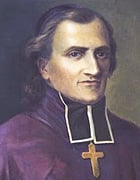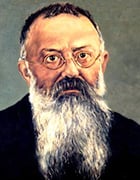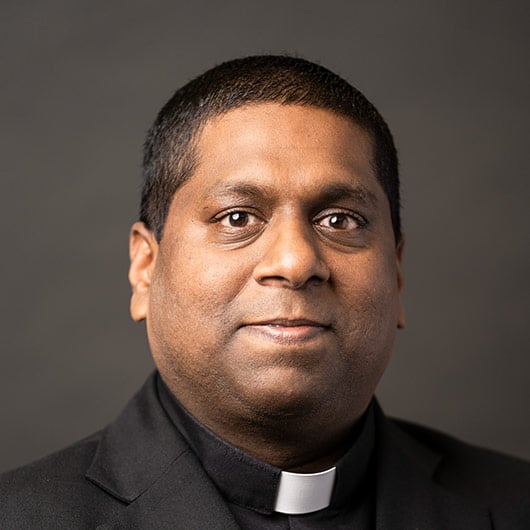History:
Pontifical Missions Societies (PMS)

Our story begins in France in the early 19th century. Pauline Jaricot, inspired by letters about the Missions from her brother, starts gathering together small groups — mostly workers in her family’s silk factory. She asked each member of the group to offer daily prayer and a weekly sacrifice of a sous (the equivalent of a penny at that time) for the Church’s worldwide missionary work. Pauline insisted that her efforts be directed to all the Church’s missions, that it be universal.
From Pauline’s vision came the Society for the Propagation of the Faith. The very first collection of the Propagation of the Faith in 1822 supported the vast diocese of Louisiana, which then extended from the Florida Keys to Canada, as well as the Missions of Kentucky and China.
The Propagation of the Faith continues to seek prayer and sacrifice for the world’s Missions, now some 1,100 dioceses in Asia, Africa, the Pacific Islands and remote regions of Latin America. Help is offered for pastoral and evangelizing programs, for catechists and catechetical work, to build churches and chapels, for the work of Religious Communities in health care and education, and for communication and transportation needs.
More than a decade before Pauline Jaricot envisioned the idea for the Propagation of the Faith; a young French nobleman — Charles de Forbin-Janson — was ordained a priest.

Forbin-Janson
One day in 1843, now Bishop Forbin-Janson had a talk with Pauline Jaricot about his longtime dream. In the course of the conversation, she suggested that he appeal to the children of France to help children around the world — and the Missionary Childhood Association (MCA), originally known as Holy childhood Association, was born.
Today, MCA continues to follow the vision of Bishop Forbin-Janson – “children helping children.” After learning about the great needs of the world’s poorest children, young people are invited to pray and to offer financial help so that children in the Missions may know Christ and experience his love and care.
The family of help for the Missions grew again as the 19th century was drawing to close. Jeanne Bigard, and her mother, Stephanie received a letter from a French bishop serving in Japan. He told of more than 50 young men preparing for the priesthood and about the difficulty he was having providing for them and trying to accommodate the growing number of young men applying for admission to the seminary. Stephanie and Jeanne began collecting funds to support those seminarians. In 1889, they established the Society of St. Peter Apostle to support mission vocations, both priestly and Religious.

In the first year of its foundation, the Society of St. Peter Apostle aided some 2,700 seminarians. Today, some 28,000 major seminarians, mostly in Asia and Africa, receive an average annual subsidy of $700 per student; assistance is also provided for men and women Religious novices.
Our story now takes us to Italy and a new century. Father Paolo Manna, a PIME missionary in Myanmar (then Burma) for a decade, begins to focus on just what is needed to be missionary and to encourage others in missionary work. His study leads him to establish, in 1916, the Missionary Union of Priests and Religious.
This spiritual apostolate continues to address itself today to those called to bring Catholics to a better understanding of their baptismal responsibility for the Church’s missionary work — to priests, Religious seminarians, pastoral leaders, those engaged in catechesis and religious education. In fact, the success of the efforts of the other three mission societies is linked to the vitality of the Missionary Union, because it is through this work that the missionary spirit — a spirit of prayer and generous sacrifice — is developed and nurtured.

These four societies each received the official title of “Pontifical” work in 1922, and their central administration was transferred to Rome. National offices exist now in more than 120 countries. Today, this “family” of mission societies in the Church’s primary means to inform Catholics about her worldwide missionary work and encourage their active participation — through prayer and sacrifice — in those efforts. Almost two centuries after our story began, it continues — a story of all of us together — as “one family in mission” — committed to the worldwide mission of Jesus.
Resources
Contacts:

Rev. Brijil Lawrence, SAC
Director of the Propagation of the Faith
Chairman of the Diocesan Mission Council
817-945-9362
The Diocese of Fort Worth is dedicated to a Safe Environment. We offer extensive and mandatory training for all employees and volunteers. Please contact the Safe Environment office if you need assistance or to report an abuse or concern.
Broken link or website issue?
